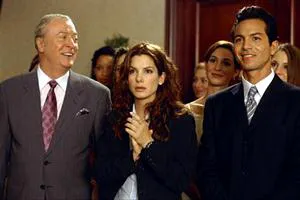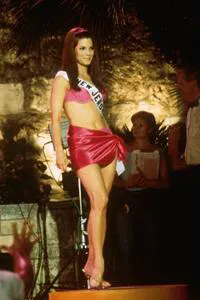Let’s reimagine “Miss Congeniality.” Imagine an FBI agent, accustomed to the male-dominated world of law enforcement, thrust into the hyper-feminine environment of a beauty pageant. The premise is ripe with potential: a fish-out-of-water story, a clash of cultures, and the ever-present threat of a killer lurking beneath the surface. It’s a recipe for comedic gold, or at least, a mildly entertaining evening.
However, “Miss Congeniality” feels like it was conceived in a creative vacuum, with the writers seemingly grasping at straws to fill the narrative void.
A Comedy of Clichés?

The film relies heavily on tired tropes: Bullock’s character is initially portrayed as unkempt and uncouth, a caricature of a “strong woman” that feels outdated and frankly, insulting. It’s as if the writers reached into a grab bag of comedic clichés, pulling out everything from makeover montages to slapstick humor, hoping that the sheer volume of gags would distract from the lack of substance.
The plot throws everything at the wall, from computer hacking to romantic subplots, talent show antics to a bomb hidden in a tiara. It’s a chaotic mess of ideas that never quite coalesce into a coherent or compelling story.
The Makeover Montage

Michael Caine, a legendary actor, is relegated to the role of the stereotypical flamboyant image consultant. His character feels one-dimensional, his “gayness” reduced to a series of tired jokes. Caine seems visibly bored throughout the film, going through the motions of transforming Bullock into a pageant-ready contestant.
The makeover itself feels hollow and uninspired. There’s no real exploration of the character’s inner transformation, no sense of her grappling with her newfound femininity. It’s all surface-level, a series of cosmetic changes that fail to resonate on a deeper level.
Echoes of the Past

Films like “Funny Girl” and countless musicals have explored similar themes of transformation, but they did so with depth and nuance. Barbra Streisand’s transformation in “Funny Girl” was rooted in genuine emotion and self-discovery. Musicals often compensate for their lighter plots with professional singing and dancing, offering a level of artistry that “Miss Congeniality” lacks.
Missed Opportunities

If “Miss Congeniality” had embraced a more nostalgic approach, drawing on the tropes and conventions of classic Hollywood comedies, it might have succeeded as a clever parody. A self-aware commentary on the absurdity of beauty pageants and the “Cinderella” trope could have been genuinely funny.
Instead, the film seems to believe that the mere presence of the FBI is enough to justify its flimsy plot. The detective element feels tacked on and uninspired, adding nothing of substance to the overall story.
Lightness of Being
Ultimately, “Miss Congeniality” seems to be arguing that mindless entertainment is a perfectly acceptable form of escapism. And perhaps, on a bright sunny day, that’s true. But for those of us who live outside of Hollywood, a little substance is always appreciated.